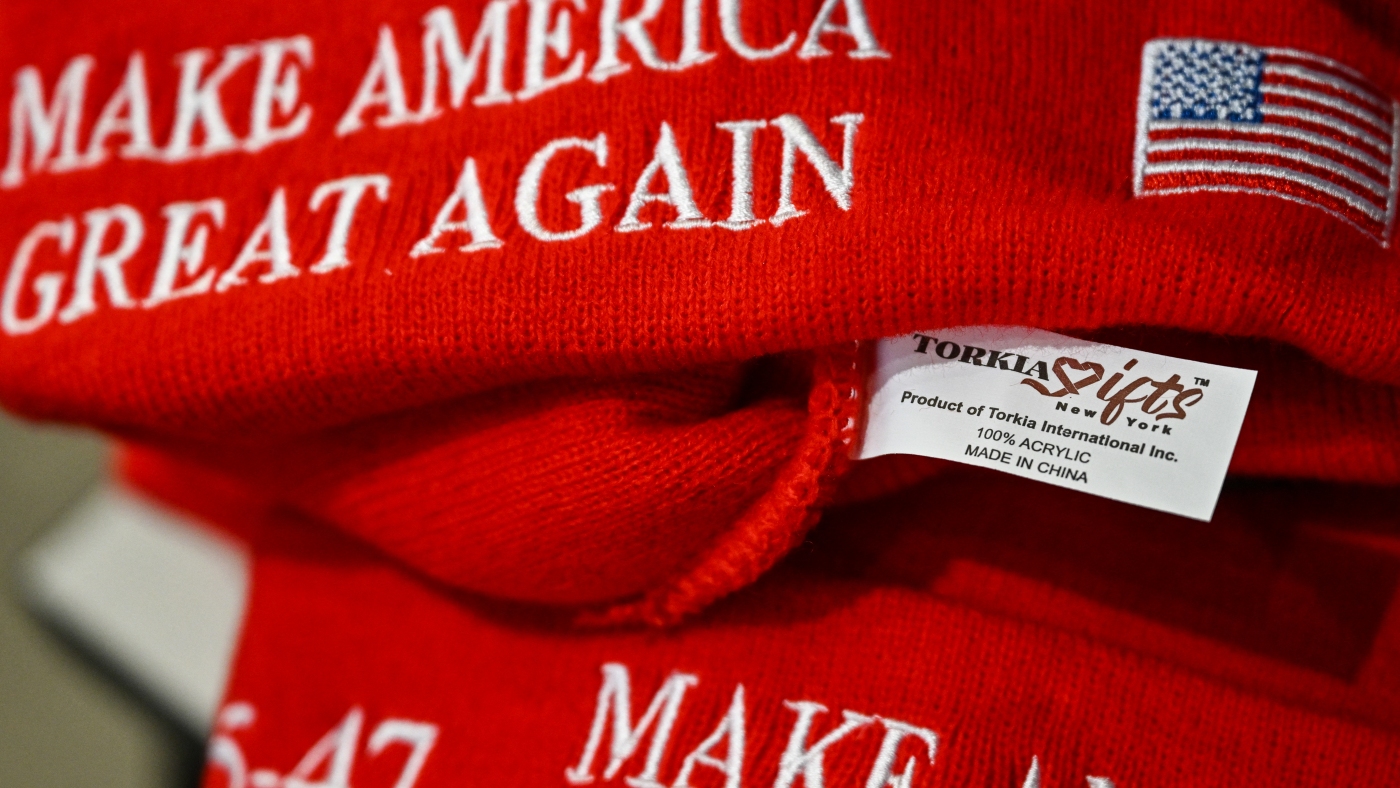
President Trump hopes to encourage more U.S. manufacturing with his import taxes on foreign goods. But an online experiment suggests most people aren’t willing to pay a premium for a “Made in the USA” product.
Angela Weiss/AFP
hide caption
toggle caption
Angela Weiss/AFP
When President Trump implemented major tariffs on imports this year, entrepreneur Ramon van Meer was curious if shifting his showerhead production to the U.S. would be financially viable.
“I wanted to see how many people would actually pay for the more expensive, ‘Made in the USA’ version,” van Meer said.
On his website, customers could choose between imported showerheads priced at $129 and a domestic model costing approximately $100 more. The higher price reflected the cost of assembling a new U.S.-based supply chain.
Price Considerations
The cost difference for the U.S.-made version was significant. Van Meer estimated he would need to charge about 85% more for a product made domestically, due to the lack of a single company producing such showerheads in the U.S.
His online experiment revealed that out of more than 25,000 website visitors during a two-week period, approximately 600 purchased the imported showerhead, while none opted for the more expensive domestic version.
“I was surprised, and not surprised,” van Meer commented. “I was expecting the cheaper, Made-in-Asia [version] to quote-unquote ‘win.’ But I was not expecting that the results were this off balance. We sold zero ‘Made in the USA’ versions.”
SaverShower: A Different Story
At a local Ace Hardware store, nearly all showerheads were imported, except the SaverShower, manufactured by Rick Whedon’s family business in Connecticut.
“My dad designed the original SaverShower in 1976,” Whedon proudly stated. “We were shipping 2,000 showerheads a week out of here because everybody wanted to save energy.”
Although SaverShowers are a staple in some hardware stores, Whedon doubts that increased tariffs will revive U.S. manufacturing of showerheads. “There’s nobody in the United States that’s going to start making showerheads here, even if the tariff were 250%,” he said.
California’s Approach to Manufacturing
David Malcolm, a California irrigation expert, ventured into showerhead manufacturing, combining domestic and imported parts. “We charge a reasonable price for our showerheads,” he explained, although they remain more expensive than their Chinese counterparts.
Malcolm’s experience highlights the difficulty of reversing the trend of overseas production. He now relies on Taiwanese suppliers after local machine shops shut down.
While tariffs aim to boost domestic industry, the lack of immediate results poses challenges for businesses. Trump’s temporary suspension of some tariffs adds to the uncertainty.
Van Meer remains open to U.S. manufacturing but acknowledges the importance of imported goods in sustaining American jobs. “Port employees are being paid. Trucking companies. Warehouse employees,” he noted.
This article was originally written by www.npr.org






